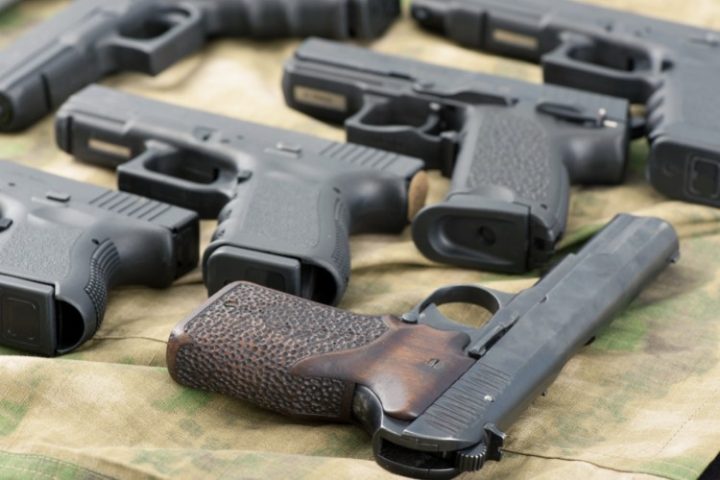
By changing the definition of who is now a gun “dealer,” the Biden administration, through its Bureau of Alcohol, Tobacco, Firearms, and Explosives (ATF) has broadened its target to include not only every gun owner in America, but anyone who might even be thinking of buying or selling one.
The overreach is justified, according to the ATF, by powers allegedly granted to the agency under Biden’s infamous Bipartisan Safer Communities Act of 2021 (BSCA). That’s the law that was supported by 19 Republicans despite them being warned that the law would be used to attack law-abiding gun owners if it was passed.
One of those Republicans, Senator Joni Ernst (R-Iowa), expressed regret that she had voted for it upon learning how the law, as predicted, is being turned on legitimate private citizens exercising their rights under the Second Amendment to “keep and bear arms.” Said Ernst: “President Biden is twisting the law to fit his liberal gun-grabbing agenda. His administration’s latest attack on lawful gun owners clearly oversteps both the intent and the text of the [BSCA], at the expense of the average gun seller.”
Ernst then added, “[I have] repeatedly defended FFL [Federal Firearm License] holders and will continue to stand up against the Biden administration’s attack on Second Amendment rights.”
This is how precious freedoms are lost: politicians such as Ernst claiming to support the Second Amendment while voting against it.
Unless successfully challenged in court, the ATF will use its agents to enforce the new rule, as they did when they murdered Arkansas man Bryan Malinowski, who, according to the ATF, bought and sold too many guns privately. The ATF arrived at Malinowski’s home before dawn on March 19 with at least 10 vehicles containing fully armed and swatted agents, and within minutes Malinowski lay dying from bullet wounds.
Following his death from those wounds on Thursday, Malinowski’s family issued this telling statement, in essence a warning to every other gun owner in the country who dares commit what the ATF declares is now illegal:
Our family has endured an unspeakable tragedy and one that is almost impossible to understand. We are mourning the loss of Bryan, who passed away earlier today.
Our thoughts and prayers also go out to the government agent who was injured … and to his family.
We do not understand the government’s decisions which led to a dawn raid on a private home and triggered the use of deadly force.
We are obviously concerned about the allegations in the affidavit released by the government today. Even if the allegations in the affidavit are true, they don’t begin to justify what happened.
At worst, Bryan Malinowski, a gun owner and gun enthusiast, stood accused of making private firearm sales to a person who may not have been legally entitled to purchase the guns.
For now, we will wait for all the facts to come out. In the meantime, we ask that the public and the media respect our privacy.
The change in definition of who now is required to get an FFL is buried in the ATF’s 466-page rule, but in essence it now declares that “a person who devotes time, attention, and labor to dealing in firearms as a regular course of trade or business to predominantly earn a profit through the repetitive purchase and resale of firearms” must now get the federal government’s permission to do so.
As Stephen Gutkowski, writing for The Reload, noted:
The rule specifically notes there is no hard number of sales that qualify as “repetitive.” Nor is there a specific standard for how much profit is required to trip the license requirement.
In fact, the ATF claimed no sales were necessary for somebody to need a license — just the intent to make repeated sales for a profit.
“[T]here is no minimum threshold number of firearms purchased or sold that triggers the licensing requirement. Similarly, there is no minimum number of transactions that determines whether a person is ‘engaged in the business’ of dealing in firearms. For example, even a single firearm transaction or offer to engage in a transaction, when combined with other evidence (e.g., where a person represents to others a willingness and ability to purchase more firearms for resale), may require a license; whereas, a single isolated firearm transaction without such evidence would not require a license. At all times, the determination of whether a person is engaged in the business of dealing in firearms is based on the totality of the circumstances.”
Dudley Brown, president of the National Association for Gun Rights (NAGR), declared, “This rule will outlaw virtually all private sales of firearms between individuals. And, as we saw in the Bryan Malinowski case in Little Rock, the ATF is willing to use outrageously excessive force — including murder — to punish violators.”
The overreach is certain to be challenged in courts. The ATF is likely to suffer another defeat, as it has in rulings against its ban on pistol grips, bump stocks, and stabilizing braces. But in the meantime, the change in definition will apply 30 days after it is published in the Federal Register.
Related article:


